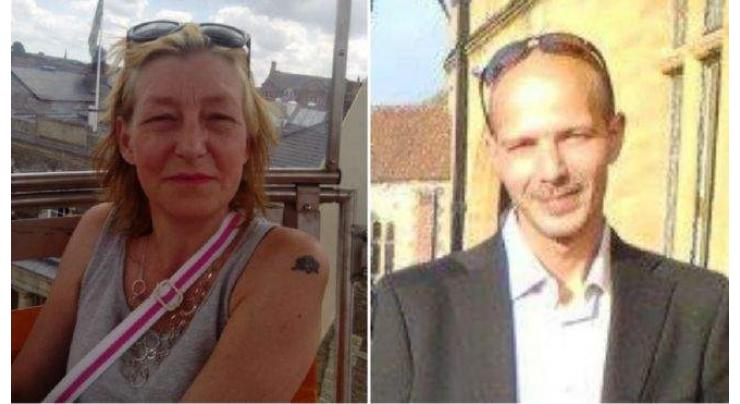
- Home
- World
- News
- UK Medics Used Anti-Nerve Agent Drug for 1st Time to Save Amesbury Attack Victim - Reports
UK Medics Used Anti-Nerve Agent Drug For 1st Time To Save Amesbury Attack Victim - Reports
Mohammad Ali (@ChaudhryMAli88) Published July 08, 2019 | 08:47 PM

UK paramedics saved the life of Charlie Rowley, who is believed to have been exposed to the chemical attack in Amesbury last summer, by administering an anti-nerve agent drug that had not been used on a patient in the country until then, The Guardian reported on Monday, citing the emergency services that had been called by the victims
In July 2018, the UK police reported that a couple was poisoned in the city of Amesbury. Shortly thereafter, the police announced that Rowley and his partner, Dawn Sturgess, were believed to have handled a bottle of perfume supposedly containing the same military-grade nerve agent which was allegedly used in the March 2018 attack on the Skripals, which London had blamed on Russia without providing any evidence. Sturgess died in hospital on July 8, while Rowley was discharged from hospital on July 20.
According to the newspaper, one of the paramedics who had helped former Russian double agent Sergei Skripal and his daughter when they were poisoned in Salisbury was by chance a part of the team which went to the aid of the Amesbury attack victims.
According to the South Western Ambulance Service NHS foundation trust (SWASFT), cited by the newspaper, at first the paramedics had no suspicion that the Amesbury incident could have been a second nerve agent poisoning. Yet, when the ambulance was called to the house of the couple for the second time a day, pure instinct told the paramedic, who had been previously among those responding to the Salisbury poisoning, to give Rowley an anti-nerve agent drug.
It was reportedly the first time when the drug, which UK crews started carrying with them on the onset of the al-Qaeda (terrorist group, outlawed in Russia) global threat, was administered to a patient.
SWASFT also said that its staff had complained about headaches, sore throats and eye problems after contacting the Amesbury victims, noting that there were also concerns over possible long-term effects on their health.
Related Topics
Recent Stories

Currency Rate In Pakistan - Dollar, Euro, Pound, Riyal Rates On 28 April 2024

Today Gold Rate in Pakistan 28 April 2024

Fresh wave of rainfall in AJK continues for the second consecutive day

Babar, bowlers help Pakistan level series 2-2 against New Zealand

Attack in restive Chilean province leaves three police officers dead

PM, Saudi Royal court advisor discuss ways to boost economic ties

England clinch third successive Women's Six Nations Grand Slam

DC Bahawalnagar leads fight for fair bread prices

Sheffield Utd relegated from Premier League

02 proclaimed offenders arrested by Wah Police

Pakistan level T20I series with nine-run victory over New Zealand

Minister meets Chinese Consul General, discusses bilateral cooperation, Chinese ..
More Stories From World
-
Philippines suspends in-person school due to heat, jeepney strike
1 second ago -
Saudi team claims top Prize at Harvard Health Hackathon for innovative Cancer Navigation Platform
19 seconds ago -
6.5 magnitude earthquake strikes in sea off Indonesia's Java island
22 seconds ago -
NE China port resumes passenger ferry service with ROK
10 minutes ago -
Tesla CEO Elon Musk arrives in China: state media
10 minutes ago -
Iraqi Prime Minister arrives in Riyadh for World Economic Forum Special Meeting
10 minutes ago
-
Mawani Strengthens Saudi Arabia’s Trade links with New Evergreen TPA Shipping Service
20 minutes ago -
2024 ZGC Forum: Global collaboration emphasized in energy transformation
40 minutes ago -
China's ecological environment improves steadily in Q1
40 minutes ago -
Strong tornado hits China's Guangzhou
40 minutes ago -
Mainland ready to provide aid to quake-hit area of Hualien: spokesperson
40 minutes ago -
New plug-in hybrids debut in Auto China 2024 amid global PHEV boom
40 minutes ago